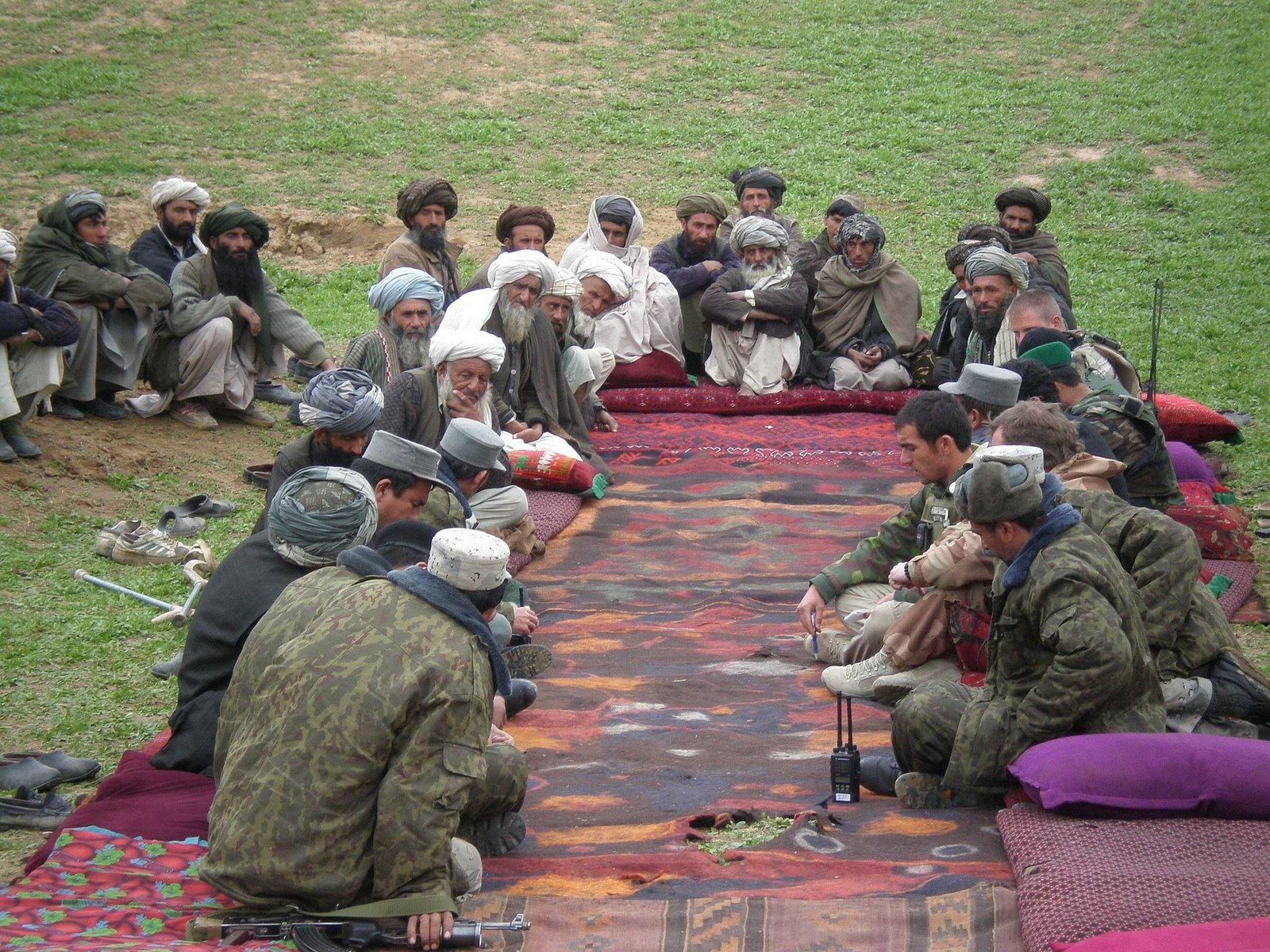A peace process which furthers the legitimisation of the Taliban is only emboldening radical Islamists across the globe.
As negotiations continue and the world awaits their outcome, the future of Afghanistan remains uncertain. The US is ready to leave, the Kabul government and the people it represents are desperate for peace, women and human rights organisations in Afghanistan are demanding inclusion in the peace process and the Taliban are eager to be seen as a legitimate political entity. What few people pay attention to is that the Afghan peace negotiations have had a ripple effect on extremist Islamic organisations in Africa. Like the Taliban, many are now adopting dual strategies. On one hand, employing extreme violence targeting citizens, hampering states and state institutions, and creating mayhem rendering the state ineffective. On the other hand, using Twitter and other social media to paint a more civil image of themselves, censoring their true beliefs, and often writing in English to direct their message towards the international community.
We have witnessed Al-Shabaab unleash violence, death and destruction on the lives of citizens. And, we have seen Al-Shabaab’s Twitter account issue a six series documentary from 4 February 2021. They claim Mohammed Abdullah came to power in 2017 as a result of a controversial and fraudulent election campaign. In short, they denounce him and his government as corrupt foreign puppets; puppets of Western governments and international agencies, but also countries like Turkey that are operating freely in Somalia. In claiming the entire economy is in the hands of foreigners and international agencies they sound very much like Taliban of today, rather than the Al Qaeda of the past. There is also less religious language and a greater political undertone. This represents a major change from their previous Islamic oriented language and sounds very much like they are experimenting and vying for legitimacy using the currency of political language. It is therefore not hard to see the impact of the Taliban on their strategies.
It is not only Al-Shabaab who are following in the footsteps of the Taliban. There are many other small and large religious extremist organisations such as Al-Qaeda in the Islamic Maghreb, the Movement for Unity and Jihad in West Africa (MUJAO), and Mokhtar Belmokhtar’s factions. Boko Haram, already a menacing violent force that kills civilians and has kidnapped young school girls, is now observing the Taliban’s success. They feel vindicated and have unleashed further kidnapping and killings, they see themselves closer to their ultimate goal of establishing an Islamic State in the region. Boko Haram’s insurgency is based on long-standing issues of religious violence between Nigeria’s Muslim and Christian communities, but their insurgence can also be seen in the context of other nearby conflicts, for example, in Northern Mali. The Boko Haram leadership also has international connections to Al-Qaeda in the Islamic Maghreb, Al-Shabaab, the Movement for Unity and Jihad in West Africa (MUJAO), Mokhtar Belmokhtar’s factions, and other militant groups outside of Nigeria. Although the Taliban have distanced themselves from other extremist groups such as Boko Haram, this does not stop Boko Haram and others like them from following the Taliban’s example, and in their quest for political power and greater legitimacy, becoming much more violent.
While the Taliban have stepped up violence in a very uncivil civil war and adopted a policy of assassination for ‘outspoken’ women and human rights defenders, they have not lost any opportunity to establish legitimacy through diplomacy with international and regional states. A year later, many people who live under the threat of extremism are still in a state of disbelief that the USA has rewarded their violence by signing an agreement on 29 February 2020, to the exclusion of the elected government, in the name of peacemaking. This is the same Taliban who have unleashed violence on the international mission and the people of Afghanistan killing more than 100,000 people and leaving several hundreds of thousands more injured and displaced. The tenant of this agreement has led the Taliban to assume that, armed with their distorted version of Islam and violent strategies, they have defeated the Afghan government and the mighty military of the USA. They do not see themselves as negotiating peace but the USA’s terms of surrender, and they understand that the greater the violence they unleash on the state and citizens the more leverage they have in imposing their version of the peace agreement.
However, the Taliban should not be allowed to decide the future of Afghanistan without regard to the diversity of views and political forces present, including that of youth and women. That would only lead to yet another war, as we already witnessed in 1992, when only warlords were made party to peace talks. Furthermore, Taliban public statements setting out their vision of government have always been critical of elections. They argue that elections are based on the political reasoning of human beings rather than being grounded in theology. The Taliban’s view of the state is based on their interpretation of the Islamic principles of Khilafat or Emirat under their religious leaders, not one that is chosen by ‘fallible humans’. In their envisaged political system, citizens and elections have no role to play. Sovereignty belongs to God and the Amir will rule in the name of God. The people of Afghanistan have already lived under this system between 1996-2000, when the Taliban were in power. There is strong agreement that those years were the darkest period in the history of Afghanistan. Their religious claims for an ‘Islamic system’ is a political ploy to accord themselves legitimacy. This may work with a westerner, but the women of Afghanistan do not buy it.
The Taliban have also ignored the advancement of many Muslim societies using the modern state system. Even if they are not perfect, these nations are still better off than they were before they adopted the modern state system, where the state carries some commitment to the citizens. The Taliban dismissed the last three presidential and parliamentary elections of Afghanistan as shams. They claimed that the results were predetermined by foreign powers, a Western attempt to divert the public away from the country’s culture and religion. Yet, armed with their vision of Islam, they have justified the killing of citizens, destruction of girls’ schools, attacks on hospitals and many more uncivil acts in this civil war. Muslims around the world are wondering if the Taliban’s beliefs are even in the same orbit as the Islam they believe in.
This is why people in African Muslim nations, especial women, are watching with disbelief and tribulation the legitimisation of the Taliban and their violent ways, and questioning what this will mean for their lives. How can this be called peacemaking when the Taliban have not renounced their violence but increased it many times over? They wonder if the ethos of human rights, justice and ethics has disappeared. They wonder if this peace, assuming that it happens, would make the world safer or more dangerous. They wonder if it will be long before extremists also feel that violence in Europe and other Western centres might pay even more handsomely. Is this the kind of peace we need in our already troubled world?








Article Discussion